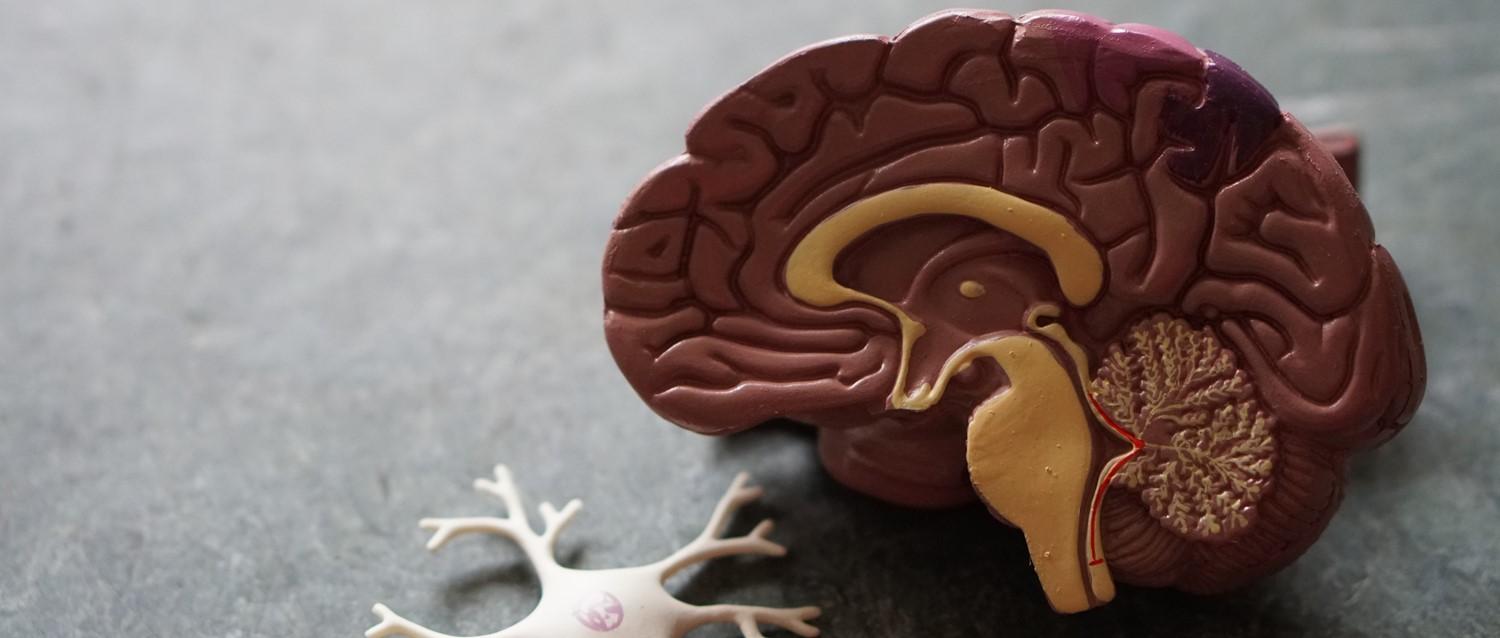
Causes of peripheral neuropathy: from diabetes to vaccines
Peer reviewed by Dr Krishna Vakharia, MRCGPLast updated by Amberley DavisLast updated 29 Jun 2022
Meets Patient’s editorial guidelines
- DownloadDownload
- Share
- Language
- Discussion
Neuropathy - also called peripheral neuropathy - can affect anyone but is more likely to develop as your age increases. In the UK, almost one in 10 people aged over 55 years have it. There are many possible causes of peripheral neuropathy, ranging from the most common to the very rare.
In this article:
Continue reading below
What is neuropathy?
Neuropathy is another name for peripheral neuropathy. Simply put, peripheral neuropathy describes damage to one or more of your peripheral nerves - a network of nerves passing information from your brain and spinal cord to your arms, legs, and all other parts of your body.
You have three types of peripheral nerves:
Sensory nerves - allow you to touch and feel sensations.
Motor nerves - trigger muscle movements.
Autonomic nerves - help to control some of your unconscious bodily functions (such as your heart rate, breathing, and sweating).
What does peripheral neuropathy feel like?
When these nerves are damaged, the 'messages' passed to and from your brain and spine can get mixed up or not get through at all. There are many possible symptoms of peripheral neuropathy, and these will depend on which types of nerves are damaged.
For example, sensory nerve damage commonly causes tingling or numbness in your hands and feet, motor nerve damage can lead to muscle weakness, and autonomic nerve damage may result in dizziness and fainting.
Common types of neuropathy
What is Guillain-Barré syndrome?
Guillain-Barré syndrome is an autoimmune disease usually caused by an infection. When your immune system makes antibodies to attack an infection, these antibodies can sometimes mistake the nerves for the infection germs, causing damage.
What is small fibre neuropathy?
Damage to the narrow nerve fibres (known as small sensory cutaneous nerves). This often causes sensory disturbances that start in the skin of your feet and progress upwards.
Continue reading below
What causes neuropathy?
There is a huge range of possible causes of peripheral neuropathy. Sometimes, doctors are unable to identify a specific cause (known as idiopathic peripheral neuropathy).
Possible causes of peripheral neuropathy include the following:
Diabetes
Also known as diabetic neuropathy, diabetes is the most common cause of peripheral neuropathy. In fact, this condition affects nearly one quarter of people with type 1 and type 2 diabetes. This is because high blood sugar (glucose) levels can cause nerve damage. It often causes tingling and numbness to the hands and feet.
For people with diabetes, the best way to prevent or treat peripheral neuropathy is to keep your blood sugar well controlled and to avoid smoking.
Physical injury
Physical injuries can put too much pressure on the nerves in the body, and sometimes this results in serious damage. This can happen when you break or dislocate a bone which exerts pressure on nearby nerves. It can also happen during medical procedures, when nerves become stretched, compressed, or detached from the spinal cord1.
Infection
Guillain-Barré syndrome is the name given to peripheral neuropathy that's triggered by an infection. In the UK, around 1,500 people develop Guillain- Barré syndrome each year. Although it's rare for infections to cause nerve damage, it may happen to anyone. The elderly and women who have just given birth have a slightly higher risk.
There's evidence for a range of different infections leading to this outcome. This list includes:
Diphtheria.
Liver and kidney disorders
Liver disease and kidney disease can both cause an abnormally high amount of harmful substances to enter your bloodstream1. This is because these organs can no longer perform their 'cleansing' jobs, converting harmful toxic waste and passing it out of your body as urine.
Vitamin deficiencies
If your body has very low levels of certain vitamins, you may be classed as vitamin deficient. This is linked to several health issues, of which peripheral neuropathy is one possibility.
For example, evidence has linked neuropathy with vitamin B12 deficiency - which usually begins with sensory symptoms in your feet; vitamin E deficiency - which can cause peripheral nerves to swell or break down, and vitamin B6 deficiency - which typically starts in your feet before reaching your legs and hands2.
Drinking too much
Drinking excessive amounts of alcohol is one of the most preventable causes of peripheral neuropathy. In part, this is because too much alcohol can contribute to vitamin deficiencies and to liver and kidney damage, as mentioned above.
Experts do not yet fully understand all the contributing factors involved in so-called alcoholic neuropathy. For example, it's thought that long-term alcohol abuse can affect spinal cord cells and increase free radical damage to nerves (unstable atoms that can damage cells)3.
Medicines
Some medications can also damage your nerves. Examples include:
Chemotherapy drugs to treat cancer - this carries a significant risk. It's estimated that this causes peripheral neuropathy in 30-40% of cases.
Radiation therapy - can cause nerve damage months or even years down the line.
Some antibiotics - such as metronidazole or nitrofurantoin if taken for an extended period of time.
An inherited disorder
Although one of the rarer causes of peripheral neuropathy, it's also possible to inherit certain diseases from your parents which can cause this condition. These include:
Charcot-Marie-Tooth syndrome - a group of health conditions that are caused by various faults in the peripheral nerve genes.
Friedreich's ataxia - causes the peripheral nerves to degenerate, becoming thinner.
FAQs - vaccine neuropathy and COVID-19
In very rare cases, neuropathy may be triggered by vaccination. There has been an increase of interest in this following the COVID-19 pandemic and vaccination roll-out; however instances of vaccine neuropathy pre-date the COVID-19 vaccine and are not new in scientific literature.
Can the COVID-19 vaccine cause peripheral neuropathy?
Rare reports include:
Small fibre neuropathy and COVID vaccine - a 57-year-old woman developed an intense burning sensation in her feet, calves, and hands following a second dose4.
Guillain-Barré syndrome and COVID vaccine - in Qatar, an elderly man developed this condition following his second dose5. In Tasmania, three cases were confirmed6.
As of February 2021, 27 cases of peripheral neuropathy, 28 cases of Guillain-Barré syndrome, and several other cases of related neuropathies had been reported to the Centers for Disease Prevention and Control (CDC) Vaccine Adverse Event Reporting System (VAERS)4.
This suggests an incidence rate between 0.01% and 0.13% - making COVID-19 vaccine neuropathy rare but certainly possible.
However, it's important to note that the same reports emphasise that 'the benefits of COVID-19 vaccine largely outweigh its risks'5, and that further studies are needed in order to 'determine whether a causal relationship exists' between these vaccines and neuropathy4.
Why do vaccines cause neuropathy in rare cases?
In short, the exact reason is unknown, and more research is needed to establish a connection. Despite reported incidences after the COVID-19 vaccine roll-out, no adverse symptoms came out of the pivotal vaccine trials.
Experts have theorised that some people's immune systems are hypersensitive to the low-dose of the COVID-19 antigen in the vaccines7.
Another theory is rare immune system sensitivity to other vaccine components7. For example, some people are allergic to polyethylene glycol - a substance also used in some household products, beauty products, and medicines8.
The latter theory may explain why other vaccines have also been linked with rare reports of Guillain-Barré syndrome and small fibre neuropathy. For example:
Can flu vaccine cause Guillain-Barré syndrome? There is a 'minute' risk - roughly one or two cases per million flu vaccine doses4.
It's important to note that these adverse reactions are extremely rare, and that your chances of developing neuropathy from COVID-19 infection is thought to be much higher than from COVID-19 vaccine. According to the National Institute of Neurological Disorders and Stroke (NIH) "almost everyone should get the COVID-19 vaccination".
Continue reading below
Further reading
National Institute of Neurological Disorders and Stroke "Peripheral neuropathy facts".
Hammond, Wang, Dimachkie, and Barohn "Nutritional neuropathies".
Chopra and Tiwari "Alcoholic neuropathy: possible mechanisms and future treatment possibilities".
Waheed, Carey, Tandan, and Tandan "Post COVID‐19 vaccine small fiber neuropathy".
Kafaie, Kim, and Krause "Small fiber neuropathy following vaccination".
Centers for Disease Control and Prevention "Allergies".
National Institute of Neurological Disorders and Stroke "Coronavirus and the nervous system".
Patient picks for Limb weakness and numbness

Brain and nerves
Causes of peripheral neuropathy: from diabetes to vaccines
Neuropathy - also called peripheral neuropathy - can affect anyone but is more likely to develop as your age increases. In the UK, almost one in 10 people aged over 55 years have it. There are many possible causes of peripheral neuropathy, ranging from the most common to the very rare.
by Amberley Davis

Brain and nerves
Are new treatments for MS on the horizon?
130,000 people in the UK are living with multiple sclerosis (MS). Though there are treatments which can ease and help to manage symptoms, MS is a condition which has no cure. But now, a groundbreaking trial is trying to find new treatments which could revolutionise care for people with MS.
by Ellie Broughton
Continue reading below
Article history
The information on this page is peer reviewed by qualified clinicians.
29 Jun 2022 | Latest version
29 Jun 2022 | Originally published

Ask, share, connect.
Browse discussions, ask questions, and share experiences across hundreds of health topics.

Feeling unwell?
Assess your symptoms online for free
Sign up to the Patient newsletter
Your weekly dose of clear, trustworthy health advice - written to help you feel informed, confident and in control.
By subscribing you accept our Privacy Policy. You can unsubscribe at any time. We never sell your data.